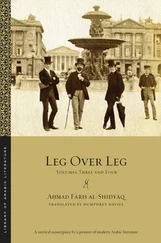2.16.71
Another of her peculiarities is that she knows what is in men’s hearts, which allows her to bewitch them with her rolling gait and her movements, grieving them and driving them wild, making them sick with love and filling them with anxiety, saddening them and confusing them, sending them into ecstasy and taking over their thoughts, enslaving them and enchanting them, making them love-lorn and distracted, filling them with longing and with terror, occupying their thoughts and putting them through agony, keeping them awake and taking them captive, choking them and setting them on fire, rending their livers and binding them with their spells, plundering them and working them till they can do no more, selling them and buying them, starving them and making them thirst, striking them in their hearts and souls, afflicting them in their lungs and breasts, tearing up their livers and spleens, hurting them in their stomachs and thighs, and beating them on their bellies and bottoms.
2.16.72
Concerning the claims that have been made as to her possessing peculiar skills in terms of the excellent management of such household tasks as sewing, embroidery, and the like, these are mentioned in many a book, and you’ll have to look them up yourselves. This concludes our discussion of women for the time being, though let none doubt that I have as much more to say on the subject as al-Farrāʾ has on ḥattā . 639Some idiot of a scholar has said, “Women are pure evil, and the most evil thing about them is that there’s no doing without them.” I declare: this, like Juḥā’s 640dream, is half true and half untrue, and the half that’s true is that there’s no doing without them.
CHAPTER 17: ELEGY FOR A DONKEY
2.17.1
“Hello there, Fāriyāq! Where have you been and what have you been up to this long while?”—“Writing poems for princes.”—“I already knew that. I’m asking you for something new.”—“Yesterday I was shocked to lose a donkey of mine. I asked the neighbors about him, but none of them admitted to stealing him, so, for a dirham, I hired a crier who set about crying in the markets, ‘Oyez! Today the Fāriyāq’s donkey ran away, leaving his shackle on its peg. Has any of you seen him?’ but the only response he got was ‘How many a donkey has fled from its master’s house today!’ When he came back to me with this good news, my choler reached its zenith and I swore that from that day forth I’d never again look into the face of a donkey, real or figurative (a leading scholar of the language having said that one of the characteristics that distinguishes our noble tongue from all others is that in it an ignoramus may be called an ass). 641Then I set to elegizing him in the following lines:
2.17.2
The donkey’s gone, leaving the shackle on the peg,
And of it not one soul has seen a trace.
Am I now to ride a peg,
Or is the shackle, though of palm fiber made, supposed to take its place?
How, too, can I return to a house where was once my home
And where he once dwelt as though we shared a familial bond?
I was that fond of him, I fed him, like a child, with mine own hand—
With mine own hand, I say, just like a child I fed him, of him I was that fond.
Barley I brought him, unmixed with diamonds, or even gold,
So concerned was I that he his teeth should keep.
If I o’erslept, his braying would wake me,
Like the voice of a sweetly trilling songbird, from sleep.
How oft did he divert me from some narrow defile
Where, as he saw, the camels on the ground around me their froth did spew
And take me on a road whose sides had been wetted
By the Beauteous with water-of-roses, otherwise known as dew!
How oft did he swiftly run, when some pretty maid’s wedding parade
Appeared in the distance, and go flat out!
And, if e’er he spied a funeral bier, he’d ne’er o’ertake it,
No matter how often between his shoulders I gave him a painful clout.
Not a day passed but he closely examined his manger,
2.17.3
Whether he was in a rich meadow or a prairie stripped of vegetation.
His wit was so human, I even thought
He must be the product, as some beasts are, of transmutation.
Ne’er did he complain at a goading, nor did his legs, to take a tour,
However long and whate’er the terrain, e’er tire.
Paralyzed be the hands of him who took him and left me
To slog through this town on foot and sink into the mire!
Doth he know that since he went I’ve been on tenterhooks,
That separation from him like a fire my liver doth rack,
And that the voice of the crier cries out today,
‘Under cover of darkness, put on your saddle and come back!’?
Let not any pampering you may get from the thief, my rival, seduce you.
He does it only out of envy.
Even for the noble or well-trained steed such things don’t last,
As you well know — they’re never lengthy.
May every donkey that from willfulness skedaddled,
From exhaustion vociferated,
From effort balked, or whose mind by must was addled,
Every lip-twisting sniffer of old she-donkey pee
Gone dry as jerky, your ransom be!
Long-headed, slender-leggèd, ne’er refusing
When pushed to the limit nor turning off the track,
I swear, a better guide to the roads he’d be
Than his master, were he not curbed by his knotted tack!
Would I had a tress from his tail that his mem’ry ne’er might fade—
I’d gaze upon it as one does upon a cloistered, unwed maid!”
2.17.4
I told him, “Your poetry was as much wasted on that ordinary donkey as your money on the crier.” He replied, “The money is truly lost but not the donkey.” “How can that be?” I asked, “when the house is devoid of his presence?” “It’s my custom,” he answered, “if I lose something and then memorialize it in verse, to imagine I’ve been compensated for it. If I don’t do so, I continue to grieve its loss.” “And can prose play the same role as verse?” I asked. “Possibly,” he replied, “with some people, for I hear that many writers, having tried to achieve pressing goals for which they lacked the wherewithal, wrote books about them and in that way were able to do without them.” “Who says so?” I asked. “They themselves,” he replied. “It’s a pack of lies,” I said. “I’ve written vast numbers of treatises on women and never for a moment felt I’d gained a replacement for one of those I was describing.” “Why, then, did you write them?” he asked. “I had no work and no business to attend to,” I said, “and found that time lay heavy on my hands, especially at night, when I had nothing to do. So I jotted down whatever came to mind.”
2.17.5
“And,” he asked, “do you not find pleasure in your writings when you read them now, or hear that others are reading them?” “On the contrary,” I replied, “I laugh at how stupid I was in those days, for I exposed my honor to the tongues of those who would vilify me, not to mention that I wasted my time in vain on things that could gain me nothing. I hear that many a married man was upset by what I said about women and my recounting of their wiles, so they tried to defeat me by using a company of scholars, who reproached me for the way my books were organized and found fault with the way they were written. I’d also quoted some of the things that had been said about women verbatim, and they claimed one shouldn’t quote things verbatim in books, plus other matters that gave me great cause for regret.” “I have heard,” he said, “that people never cease attacking a writer as long as he’s alive, but when he dies, will go to great lengths to find some saying of his they can pass down. As the poet says,
Читать дальше












